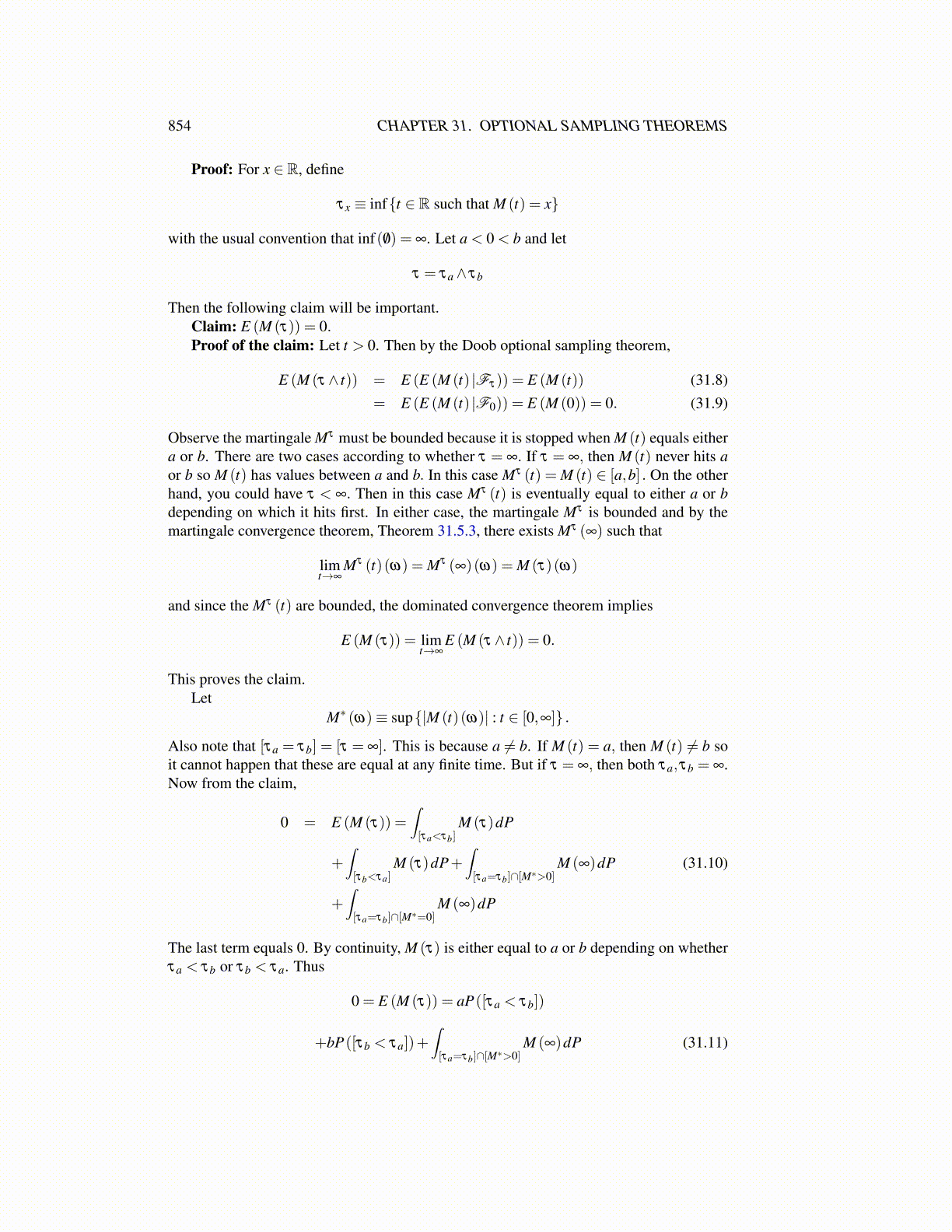
854 CHAPTER 31. OPTIONAL SAMPLING THEOREMS
Proof: For x ∈ R, define
τx ≡ inf{t ∈ R such that M (t) = x}
with the usual convention that inf( /0) = ∞. Let a < 0 < b and let
τ = τa∧ τb
Then the following claim will be important.Claim: E (M (τ)) = 0.Proof of the claim: Let t > 0. Then by the Doob optional sampling theorem,
E (M (τ ∧ t)) = E (E (M (t) |Fτ)) = E (M (t)) (31.8)= E (E (M (t) |F0)) = E (M (0)) = 0. (31.9)
Observe the martingale Mτ must be bounded because it is stopped when M (t) equals eithera or b. There are two cases according to whether τ = ∞. If τ = ∞, then M (t) never hits aor b so M (t) has values between a and b. In this case Mτ (t) = M (t) ∈ [a,b] . On the otherhand, you could have τ < ∞. Then in this case Mτ (t) is eventually equal to either a or bdepending on which it hits first. In either case, the martingale Mτ is bounded and by themartingale convergence theorem, Theorem 31.5.3, there exists Mτ (∞) such that
limt→∞
Mτ (t)(ω) = Mτ (∞)(ω) = M (τ)(ω)
and since the Mτ (t) are bounded, the dominated convergence theorem implies
E (M (τ)) = limt→∞
E (M (τ ∧ t)) = 0.
This proves the claim.Let
M∗ (ω)≡ sup{|M (t)(ω)| : t ∈ [0,∞]} .
Also note that [τa = τb] = [τ = ∞]. This is because a ̸= b. If M (t) = a, then M (t) ̸= b soit cannot happen that these are equal at any finite time. But if τ = ∞, then both τa,τb = ∞.Now from the claim,
0 = E (M (τ)) =∫[τa<τb]
M (τ)dP
+∫[τb<τa]
M (τ)dP+∫[τa=τb]∩[M∗>0]
M (∞)dP (31.10)
+∫[τa=τb]∩[M∗=0]
M (∞)dP
The last term equals 0. By continuity, M (τ) is either equal to a or b depending on whetherτa < τb or τb < τa. Thus
0 = E (M (τ)) = aP([τa < τb])
+bP([τb < τa])+∫[τa=τb]∩[M∗>0]
M (∞)dP (31.11)